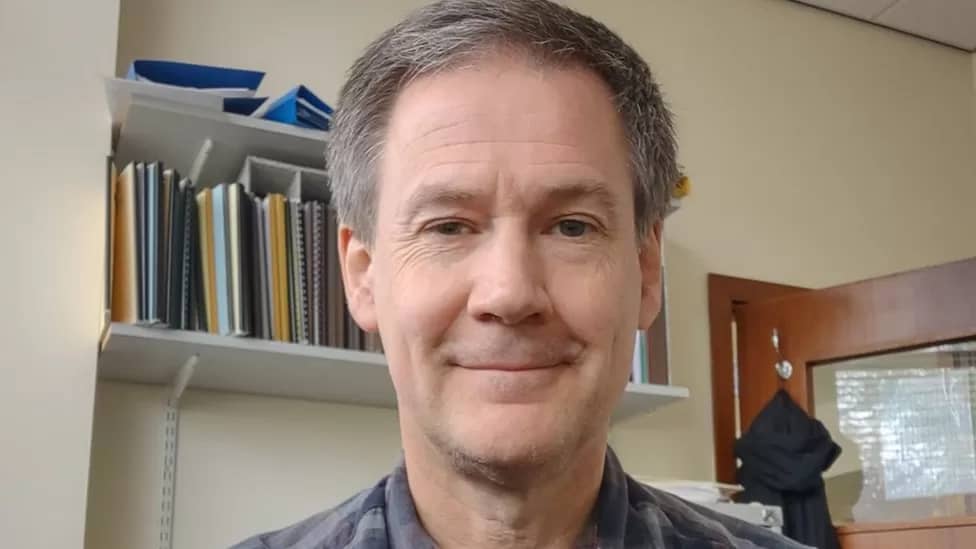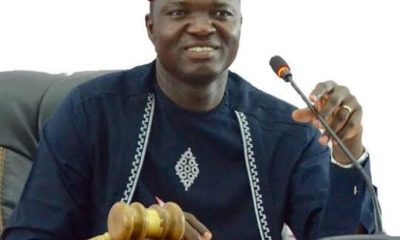International News
AI Tool Holds Promise For Improving Breast Cancer Treatment

Scientists from the University of Leicester are collaborating on the development of an innovative Artificial Intelligence (AI) tool that has the potential to identify patients who may be more susceptible to experiencing side effects from radiation treatment for breast cancer.
The team of experts is optimistic that this tool will prove instrumental in assisting healthcare professionals and patients in making informed decisions regarding radiation treatment options.
With the overall survival rates for breast cancer significantly improving in recent years, it has become imperative to address potential adverse effects associated with radiation therapy, such as skin ulcers and heart damage.
The researchers are hoping AI can predict where and what side effects a patient will get.
Dr. Christopher Talbot, the science coordinator for the project, emphasizes that the impact of this technology on cancer patients could be significant.
While radiotherapy is an effective treatment for tumors, some patients may suffer significant side effects.
He said “The impact this could have on cancer patients is significant. It would enable them to make informed choices which will improve their quality of life after cancer treatment.
“Although radiotherapy is very good at treating tumours, we know that a minority of patients can suffer significant side effects from radiation treatment.
“AI could assist in the decision-making process and ultimately improve an individual’s quality of life by predicting where and what the side effects will be, based on their genetic makeup.
“Data from existing cancer patients will be used to design and implement an AI tool that serves exactly this purpose.” He added.
The researchers are part of a team from across Europe who are developing the tool. It will be trialled across 26 hospitals, including Leicester, over the next three years.
Dr Tim Rattay, associate professor in breast surgery at the University of Leicester, said: “It’s our hope this will be a world-leading product.”
International News
Colombia Blocks US Deportation Flights Over Migrant Treatment

In a bold move, Colombian President Gustavo Petro declared on Sunday that he would not allow US deportation flights carrying Colombian migrants to access his country’s airspace.
The left-wing leader took to X (formerly Twitter) to express his strong stance, stating, “The United States cannot treat Colombian migrants as criminals. I forbid entry to our territory to US planes carrying Colombian migrants.”
Petro made it clear that such flights would only be accepted once Washington established a protocol to ensure the “dignified treatment” of deported migrants.
READ MORE: How Trump Plans To Grow American Economy By $1 Trillion Daily
The president later confirmed in a separate post that he had already turned back US military planes that were en route with Colombian migrants on board, although he did not provide further specifics on the matter.
While AFP sought confirmation from US authorities regarding the blockade of deportation flights, no immediate response was forthcoming.
Petro’s statements come just a day after Brazil’s government voiced similar outrage over the treatment of deported Brazilians.
Brazil condemned the US administration under President Donald Trump, citing instances where Brazilian migrants were deported while handcuffed on flights, describing it as a “flagrant disregard” for their basic rights.
In his remarks, Petro emphasized that he would be open to allowing civilian US flights to transport deported migrants as long as they were not subjected to treatment “like criminals,” signaling a broader call for humane treatment of migrants under international deportation policies.
International News
Lawmaker Introduces Bill To Allow Trump A Third Presidential Run

In a controversial move, Republican Representative Andy Ogles has introduced a resolution aimed at amending the U.S. Constitution to permit former and current President Donald Trump to run for a third term in office.
The proposal, announced on Thursday, seeks to revise the 22nd Amendment, which limits presidents to two terms.
Ogles argued that Trump is uniquely equipped to address the nation’s challenges and lead a turnaround for the United States.
READ MORE: EDO: SUBEB Chair, 6 Commissioners, Board Chairs Take Oath Of office
“No person shall be elected to the office of the President more than three times,” Ogles said in his statement. “He has proven himself to be the only figure in modern history capable of reversing our nation’s decay and restoring America to greatness. He must be given the time necessary to accomplish that goal.”
The congressman also underscored the importance of giving Trump the tools needed to address what he described as damage caused by the Biden administration.
“We must provide Trump with every resource necessary to correct the disastrous course set by the Biden administration,” he added.
“He is dedicated to restoring the republic and saving our country, and we, as legislators and as states, must do everything in our power to support him.”
The resolution calls for a constitutional amendment to modify the 22nd Amendment, which was ratified in 1951 following Franklin D. Roosevelt’s unprecedented four-term presidency from 1933 to 1945.
Roosevelt’s extended time in office spurred fears of presidential overreach, leading to the adoption of term limits.
Trump, who won the 2024 presidential election and returned to office, has previously downplayed the idea of seeking a third term.
However, during a conversation with Republican lawmakers, he humorously alluded to the possibility.
“I suspect I won’t be running again unless you do something,” Trump said. “Unless you say, ‘he’s so good, we have to just figure it out.’”
Ogles lauded Trump’s actions during his second term, citing executive orders aimed at securing the southern border, restricting gender identities to male and female, boosting energy production, and withdrawing the U.S. from the World Health Organization.
These measures, according to Ogles, demonstrate Trump’s ability to restore America’s standing and address critical issues.
The 22nd Amendment, proposed in 1947 and ratified four years later, was designed to uphold the principle of limited presidential terms first established by George Washington, the nation’s first president.
Washington voluntarily stepped down after two terms, warning against any president serving so long as to resemble a monarch or dictator.
Republicans currently hold a slim three-seat majority in the House of Representatives, but amending the Constitution is a daunting task.
The proposed amendment would require approval from two-thirds of both the House and Senate, as well as ratification by three-fourths of the states—a high bar in today’s deeply divided political climate.
While Ogles’ proposal is unlikely to succeed, it reflects the enduring loyalty Trump commands among his supporters and within the Republican Party.
The resolution has already drawn criticism from opponents who argue it undermines democratic principles, while supporters insist it is necessary to allow Trump to complete what they view as his mission to “restore America’s greatness.”
International News
Bangkok Shuts Over 350 Schools As Air Pollution Reaches Dangerous Levels
Bangkok authorities closed more than 350 schools on Friday due to hazardous air pollution, marking the largest mass closure since 2020.
This comes as the Thai capital was ranked the world’s seventh-most polluted major city, according to air quality monitor IQAir.
The Bangkok Metropolitan Administration (BMA) announced that 352 schools across 31 districts were shut down to protect students from the worsening air quality.
By Friday morning, PM2.5 pollutant levels — fine particles small enough to enter the bloodstream — reached 108 micrograms per cubic meter, far exceeding the World Health Organization’s recommended limit of 15 micrograms for daily exposure.
READ MORE: Nigeria Can Achieve 5.5% GDP Growth – NESG
Air pollution in Southeast Asia typically spikes during the colder months, as stagnant air combines with smoke from crop burning and vehicle emissions.
Authorities reported that this week’s pollution levels were among the highest in years, prompting measures not seen since the pandemic.
On Thursday, more than 250 schools in Bangkok were already closed, and city officials urged residents to work from home while restricting heavy vehicles from entering the capital.
The Interior Ministry has also banned the agricultural practice of stubble burning, threatening legal action against offenders.
Prime Minister Paetongtarn Shinawatra, speaking from the World Economic Forum in Switzerland, called for urgent measures to combat the crisis, including limiting construction projects and cooperating with neighboring countries.
Both Vietnam’s Ho Chi Minh City and Cambodia’s Phnom Penh also ranked among the world’s top 10 most polluted cities on Friday, with their governments facing mounting pressure to address air quality concerns.
Despite international attention, Cambodian authorities downplayed the issue, stating that their air quality remained within acceptable levels.
“Other countries have their own standards. Cambodia has our own standard to determine the air quality,” said Environment Ministry spokesperson Khvay Atitya.






















